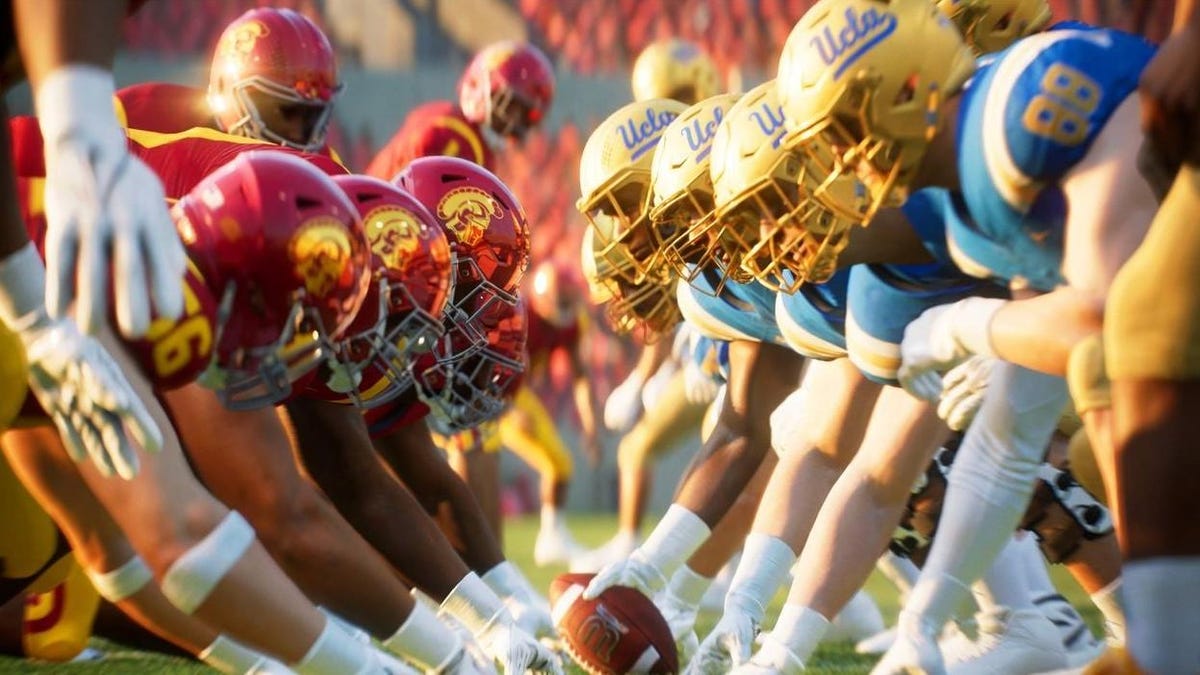Last year, Electronic Arts CEO Andrew Wilson said AI would help the publisher unlock the “holy grail” of game development. Now he’s confirmed the company has already used it to make its latest sports blockbuster, EA College Football 25.
The Top 10 Most Played Games On Steam Deck: February 2024 Edition
“Creating 150 unique stadiums and over 11,000 player likenesses couldn’t be done without EA’s deep history of being a technology leader and by our incredibly passionate and talented teams harnessing the power of AI and machine learning to deliver truly amazing entertainment,” Wilson said on the company’s latest earnings call.
EA College Football 25 became one of the biggest games of the year before it even launched, with hundreds of thousands buying the $100 deluxe edition to get early access. Over a week after it officially released, EA announced the sports franchise’s return has already been played by over 5 million people.
EA has owned the market for pro football games for decades with Madden and its exclusive NFL license. As Wilson pointed out on the call, the popularity of college football has exploded in recent years. But unlike the NFL, with college leagues there are exponentially more teams, stadiums, and players that need to be recreated in-game. The CEO said that’s why EA turned to AI for EA College Football 25.
“For those that don’t track our industry or track our sports games in particular, we typically, in any given year, will develop about 500 to 1,000 star heads inside of one of our games,” Wilson said. “And over the course of a platform generation, through the hand tooling of that, we ultimately fill out the full roster of star heads in our games. And of course, there were ebbs and flows in that.”
He continued:
But as we were launching College on a new generation of platforms to a new generation of fans with the world’s largest single-sport NIL deal, where image was a really important part of the process, getting 11,000 star heads into the game was a top priority for us. The reality is our teams are incredible and built workflows to facilitate that, but they were amplified and accelerated through AI and machine learning.
And we were able to take in a whole plethora of photo imagery across 11,000 players and build workflows out where AI and machine learning would generate heads and our very talented artists would be able to come in and touch up and enhance those heads versus having to go through the full head development programs. In the absence of AI we simply would not have been able to deliver College Football at the level we did, even though we’ve given the team many, many years in development.
Wilson, who once called NFTs part of the game industry’s future, is saying that every star player’s face you see in EA College Football 25 was based on something originally regurgitated by generative AI. He also suggested elsewhere in the call that AI trained on real-world soccer data is being used to create more realistic and “authentic gameplay driven by enhanced tactical sophistication” in EA Sports FC (formerly known as FIFA). The CEO added that these are all things that wouldn’t have been possible even three years ago.
What Wilson didn’t explain is what specific tools EA’s studios are using for this work, what data they are trained on, or how the practices were instituted in the day-to-day work of artists, programmers, and designers. Is it something they asked for or that’s being forced on them in the name of the “holy grail” of making bigger games even faster and more cheaply?
EA is one of a number of large game companies that’s laid off hundreds without curbing CEO compensation amid the current industry slump. Earlier this year, Microsoft was another, laying off nearly 2,000 employees across Activision Blizzard and other parts of its gaming business. Some of those were concept artists working on Call of Duty which Wired reports is already using generative AI to help design in-game assets and even purchasable cosmetics.
Last year, Kotaku reported that Activision Blizzard’s then-CEO Bobby Kotick said he thought AI’s impact on gaming would be as transformative as the original Macintosh was for computers. Thousands of game actors are currently on strike against Activision and others as they seek AI protections for their work and guarantees that it won’t be stolen and used to generate new performances they never get paid for.
